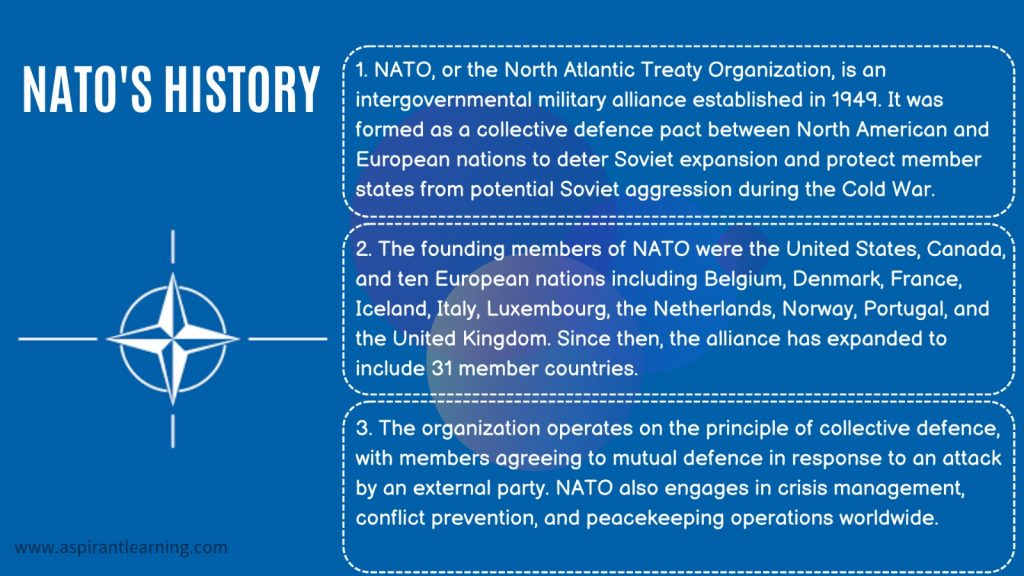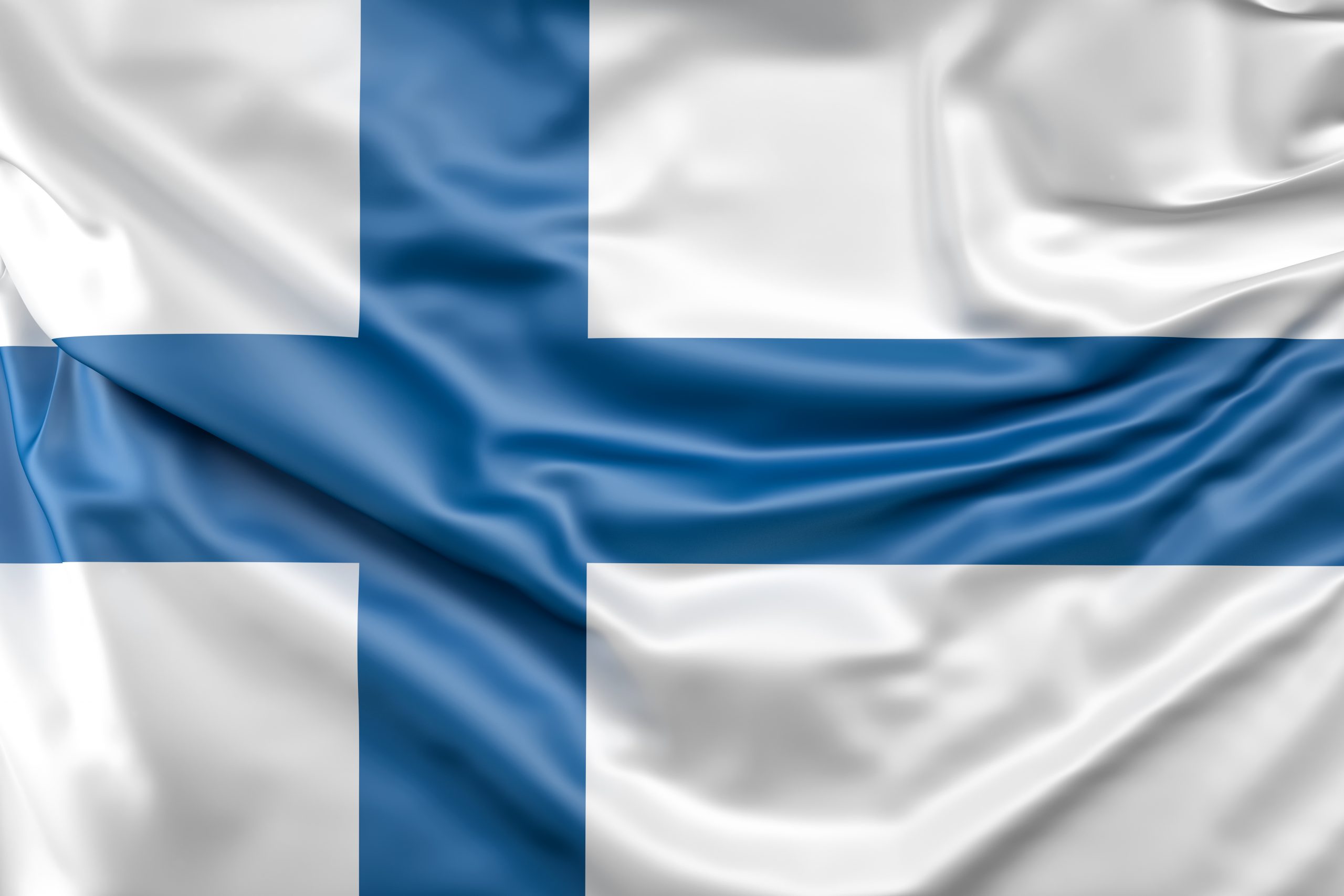News Highlights:
- According to NATO Secretary-General, Finland will become the 31st member of the NATO military alliance.
- Turkey is the last country to have ratified Finland’s membership.
Minimum Requirements for NATO Membership:
- Political and economic stability:
- The country must have a stable democratic government, a functioning market economy, and a proven record of respecting human rights and the rule of law.
- Military readiness:
- The country must have a capable and well-trained military that can contribute to the alliance’s collective defence.
- This includes a commitment to investing in security and maintaining modern equipment.
- Commitment to collective defence:
- The country must be willing and able to contribute to the collective defence of the alliance, including by supporting other member countries in times of need.
- Compatibility with NATO values:
- The country must share the alliance’s values, including a commitment to democracy, individual liberty, and the rule of law.
- Geographic proximity:
- While not an official requirement, NATO tends to give preference to countries close to existing members, making it easier to coordinate and deploy forces in times of crisis.
- The consensus of current members:
- New members must be invited by a consensus of current members.
- Decisions to invite new members must consider the required ratification process in the member states.
What is NATO?
- About:
- It is a military alliance established by the North Atlantic Treaty (also called the Washington Treaty) of April 1949 by the United States, Canada, and several Western European nations to provide collective security against the Soviet Union.
- NATO’s essential and enduring purpose is to safeguard the freedom and security of all its members by political and military means.
- Current 30 member states:
- Its original members were Belgium, Canada, Denmark, France, Iceland, Italy, Luxembourg, the Netherlands, Norway, Portugal, the United Kingdom, and the United States.
- Joining the original signatories were Greece and Turkey (1952), West Germany (1955, from 1990 as Germany), Spain (1982), the Czech Republic, Hungary, and Poland (1999), Bulgaria, Estonia, Latvia, Lithuania, Romania, Slovakia, and Slovenia (2004), Albania and Croatia (2009), Montenegro (2017), and North Macedonia (2020).
- France withdrew from the integrated military command of NATO in 1966 but remained a member of the organisation. It resumed its position in NATO’s military base in 2009.
- Headquarters:
- Headquarters: Brussels, Belgium.
- Headquarters of Allied Command Operations: Mons, Belgium.

What are the Objectives of NATO?
- Political objectives:
- NATO promotes democratic values and enables members to consult and cooperate on defence and security-related issues to solve problems, build trust, and, in the long run, prevent conflict.
- Military Objectives:
- NATO is committed to the peaceful resolution of disputes.
- It has the military power to undertake crisis-management operations if diplomatic efforts fail.
- These are carried out under the collective defence clause of NATO’s founding treaty – Article 5 of the Washington Treaty or under a United Nations mandate, alone or in cooperation with other countries and international organisations.
- NATO has only once invoked Article 5, on 12th September 2001, following the 9/11 attacks on the World Trade Center in the US.
Other Countries Reaction:
- Russia:
- Early, Russia threatened to take military measures if the membership went through and warned Finland to be aware of the consequences of this move.
- European and US:
- European Nations and the United States have welcomed the announcement.
- Norway and Denmark have said they will push for NATO admission faster.
- Until the membership is formally accepted, the US stated it is prepared to provide any necessary defence support or address any concerns.
- Turkey:
- Turkey is the last country to have ratified Finland’s membership.
- Earlier, Turkey opposes Finland and Sweden from joining NATO.
- The Turkish government claimed it could use its membership in the Western alliance to veto moves to admit the two nations.
- The Turkish government cited Sweden and other Scandinavian countries for supporting Kurdish militants and other groups it considers terrorist.
Pic Courtesy: freepik
Content source: The Hindu



